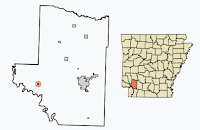"Two years after census 2020, many cities and states say the count wildly underestimated their residents, costing them significant federal and state money for the social services and infrastructure their areas need. The numbers also have created confusion in drawing new voting districts, potentially leaving some areas with less political power than they should have in state legislatures and Congress," Tim Henderson reports for Stateline.
The issue disproportionately affects rural counties and communities that are already often at a disadvantage in drawing state and federal funding. The pandemic may have skewed response rates overall, and the digital divide left many rural areas at a disadvantage since 2020 was the first census to rely primarily on citizens filling out forms online. Plus, the bureau used a new statistical technique to keep data anonymous that may have hurt small-town counts. And finally, the Trump administration halted the count early, making it more difficult for hard-to-count rural areas to catch up.
 |
| McNab, Ark., and Hempstead County (Wikipedia map) |
Some of the incorrect counts can't be verified door-to-door, but a new tool from the bureau "allows state and local officials to flag errors in counts of people living in institutional settings such as college dorms and prisons. Cities and states have only until April 21 to submit comments on the plan and can submit possible errors for review between June of this year and June 2023," Henderson reports. "The new plan has drawn 34 detailed complaints from cities, states and their advocates, many asking for a way to correct errors that should have been picked up during review processes that were canceled because of the coronavirus pandemic. The new program will help fix institutional counts for future estimates, which the bureau issues annually between its full census each decade. Any corrections won’t, however, affect official counts used for redistricting."
The National Urban League (which sued to stop an early end to the count) is calling for a thorough review that includes more than institutions. Senior 2020 census adviser Jeri Green told Henderson that the bureau "should not place all the burden of getting the count right on elected officials, many of whom don’t have the resources or technical capabilities to challenge their count."
No comments:
Post a Comment